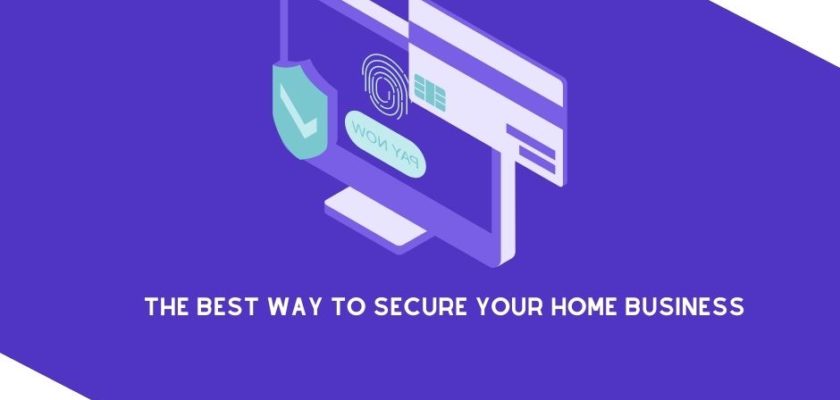Home-based businesses account for about half of all small businesses in the U.S and offer many advantages including savings on rent and commuting costs and even some tax benefits. 1 During a pandemic home-based businesses can be especially beneficial because you can practice socializing Keep your distance while making a living.
But when you’re busy running a business from the comfort of your home it’s easy to overlook critical components like security which can prevent your business from falling victim to burglary and cyberattacks.
Why Secure Your Home Business?
Most small businesses own physical assets such as inventory equipment and furniture as well as digital assets such as computer data. If your home is not secure your business or personal property can be stolen. Rather than creating opportunities like this make sure all exterior doors are secure Latch locks and windows are securely locked. Also illuminate the exterior of your home with solar or motion-activated lights.
You should also consider installing a security system in your house which can deter thieves from targeting your property. People with this intention often want to avoid detection and will bypass houses with security systems in order not to trigger alarms or motion activation Surveillance cameras. In addition to burglar alarms many home security systems include smoke detectors which can help protect your property from fire damage by sounding an alarm if a fire breaks out.
Installing a Home Security System
Once you choose to protect your home decide what type of system you want. Security systems can be wired or wireless professionally installed or DIY and monitored or unmonitored. You can hire a professional security company to install a wired or wireless system or you can install wireless own system. The type of system you need depends on your budget and the value of the property you want to protect.
When choosing between installed products and DIY systems consider whether you have the time inclination and technical ability to install and maintain the system yourself. You should also consider whether you want to sign a long-term contract.
Many security systems include the following components:
- Motion Sensor: Used to detect unexpected motion. Also used to activate cameras and lights
- Camera: May be indoors outdoors or both. The doorbell camera is activated when the motion sensor is triggered or the doorbell button is pressed.
- Intrusion Sensor: Activates when a door or window is opened.
- Glass Break Detector: Activates when a glass door or window glass is broken.
- Keypad: Used to operate the system
Some security companies offer extra items like panic button key fobs and smart locks. The cost of your system will depend on the option you choose. For example you can buy a basic DIY system from Simplisafe for around $200 and then pay an additional $14.99 per month for monitoring services without contract. 2 Alternatively if you’re looking to invest in a larger long-term commitment you can purchase an installed wireless system from ADT for a minimum of $1613 to $2477 on a three-year contract including 24/7 monitoring. 3
If you choose a system installed by a professional security company be sure to read the contract carefully before signing it. It may expose hidden surprises such as hefty fines for early termination.
Protect Your Information
Like most business owners you probably use a computer to send or receive data to customers and store electronic documents such as invoices sales receipts and tax statements. It is important to protect the information on your computer especially if it contains personally identifiable information Information (PII) such as the customer’s name address and credit card number. PII is valuable to identity thieves so you should take extra steps to keep it safe.
Verizon found in its 2019 study on data breaches that small businesses were the target of 43 percent of all cyberattacks. 4 To protect your business from vulnerabilities take the following basic precautions:
- Invest in some robust security software to prevent viruses and malware from invading your computer.
- Use a firewall to protect your internet connection.
- Regularly back up your computer files to the cloud or to an offsite location.
- Make sure your Wi-Fi network is securely encrypted and hidden.
- Talk to your bank or processor to make sure they use the most trusted and proven tools and anti-fraud services. 5
Review Your Insurance
While a security system can stop thieves and cybercriminals from invading your home and business it can’t prevent events like fires and storms that can damage your business property. For these reasons it is important to insure your home business. Don’t assume your homeowner The policy will cover your business-related activities and business-owned property. Talk to your insurance company to find out if you need additional coverage.
